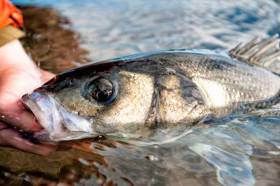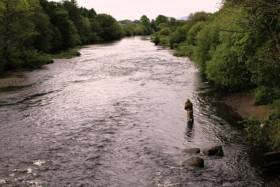Displaying items by tag: Catch & Release
Anglers Will Be Allowed One Bass A Day From Monday
#Angling - Anglers fishing in Ireland will now be allowed to keep one bass a day from Monday 1 October till the end of 2018.
The move follows new advice from the International Council for the Exploration of the Sea (ICES) that affects all divisions around the island of Ireland.
According to this advice, recreational angling does not impact on bass stocks to the degree previously believed.
ICES also estimates a 10% higher survival rate from catch-and-release angling than previous figures.
Inland Fisheries Ireland (IFI) reminds bass anglers that a minimum size limit of 42cm still applies.
“Bass anglers have an extremely positive approach to bass conservation using catch and release alongside good handling in order to maintain the species and their recreational activity,” IFI says.
“Anglers, through their conservation-oriented ethos, have been the key stakeholders in supporting research into bass stock status over the past five years by providing catch and fish stock data, which has underpinned provision of scientific and management advice.”
Voluntary Halt On Catch & Release Salmon Angling Is Lifted
#Angling - Inland Fisheries Ireland advises anglers that, where conditions are suitable locally, catch-and-release angling for salmon may be resumed after the lifting of an appeal for a voluntary halt.
The fisheries body thanks all anglers for their assistance since the appeal made after July’s high water temperatures and drought conditions, which called for a cessation of fishing in catch-and-release rivers or where bag limits had been reached on open rivers.
While there are still low water levels in many parts of the country, water temperatures have now returned to within normal limits.

























































